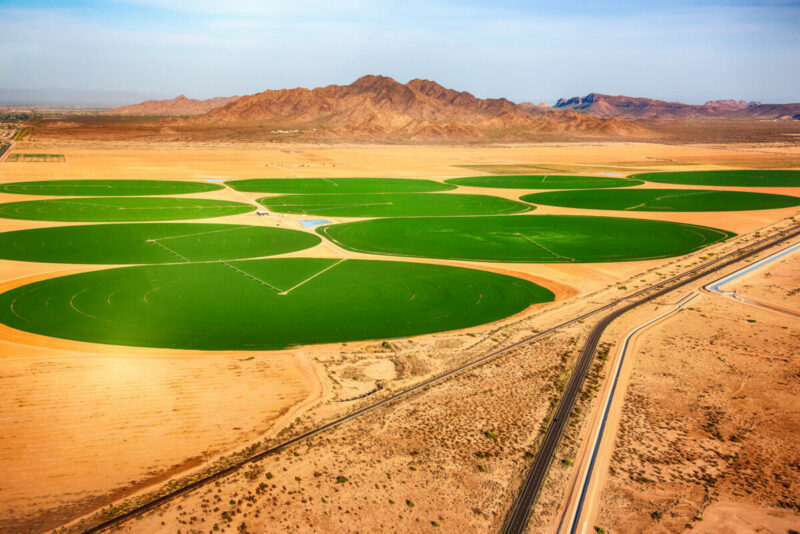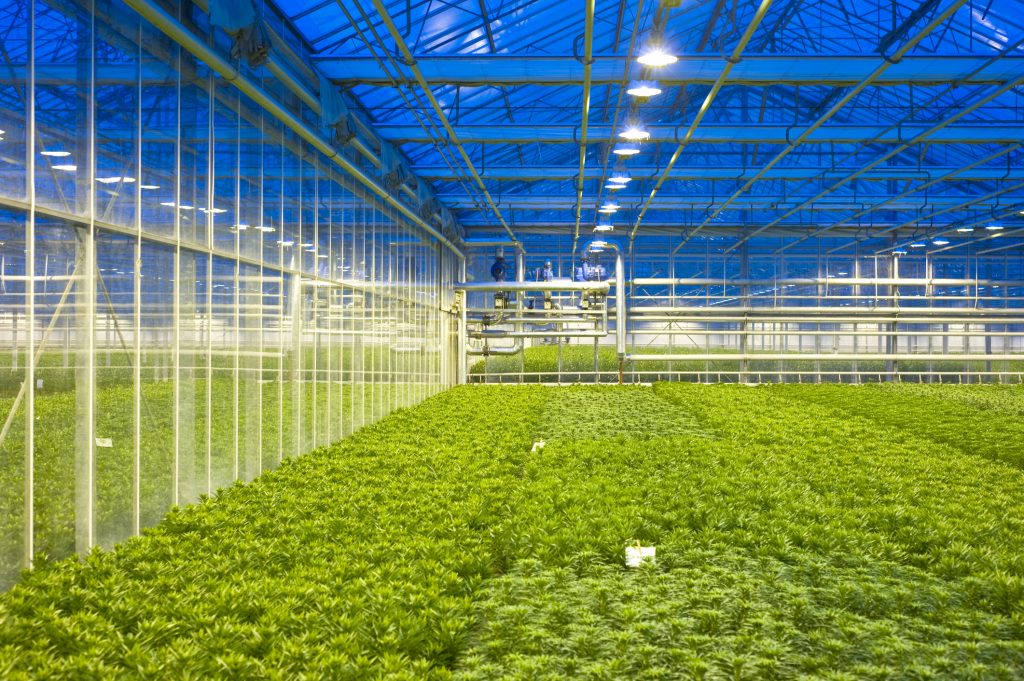Ramadan: fasting, feasting and fighting food waste in the UAE

From daily and weekly rotating menus to extravagant iftar buffets, the UAE’s hospitality sector generates more food waste in Ramadan than at any other time of year.
A major factor in the amount of food waste being produced is the mindset of diners, who expect nothing less than a tantalizing feast-like iftar – the meal taken by Muslims after sunset to break their daily fast during Ramadan.
But much of this food goes uneaten. Around 25-50% of the food prepared in the Arab world during Ramadan is wasted, according to the United Nations Environment Programme’s ‘The State of Food Waste in West Asia’ 2021 report.
In the UAE, food waste doubles during Ramadan, costing the local economy more than $3.5 billion per year, according to the Ministry of Climate Change and Environment (MOCCAE).
Many hotels and restaurants are now working on minimizing their food waste without compromising on the quality of their iftar buffets. The motives vary – some want to cut their costs, some want to contribute to local food security initiatives, while others are eager to lower their environmental footprint.
Hotel initiatives to tackle food waste during Ramadan
At Hilton Hotels & Resorts, decreasing, diverting, and donating food waste has turned into a key focus not just in Ramadan. However, during Ramadan, the hotel pays special attention due to the increase of volume.
“We’re using a combination of different technologies and partners to tackle food waste with our three-tier approach Decrease/ Donate/ Divert,” says Sebastian Nohse, Senior Director of Culinary at Hilton EMEA.
“Through our award winning LightStay system, we track all our food waste globally that allows us to measure and decrease the waste produced through analysis of historic data. We’re using Winnow as a partner in many of our UAE hotels to measure the actual waste by category and total weight.”
The hotel group recently partnered with Dubai-based agritech platform ‘Fresh on Table’ to move 350 tons of imported fruit and vegetables annually to locally grown products. To help them achieve that goal, Fresh on Table will provide 19 ingredients for the hotel group, including lettuce, mushrooms, and tomatoes, all from UAE farms.
This initiative is not only positively impacting Hilton’s carbon footprint but is also reducing waste as the items are harvested fresh, especially locally grown leaf lettuce which has a longer shelf life and higher nutritious value.

The lavish Iftar buffet at the Sheraton Dubai Creek

Diners enjoy the iftar feast at the Sheraton Dubai Creek
Left: The lavish Iftar buffet at the Sheraton Dubai Creek
Right: Diners enjoy the iftar feast at the Sheraton Dubai Creek
“We have also partnered for a trial with a local company called ‘The Waste Lab’ who specialize in the collection and natural composting of food waste,” says Nohse.
In addition, Hilton has been working with their chefs on ‘Zero Waste Menus’ in the UAE, where the team plans and works through each element of food production to come up with creative ways of repurposing normally unused elements of food.
Meanwhile, Sheraton Dubai Creek Hotel & Towers, one of the oldest hotels in Dubai, has made food waste reduction a key performance indicator (KPI) for the culinary team to monitor progress and keep food cost in control.
The hotel, which is hosting an extensive Arabic and Mediterranean buffet this Ramadan, conducts regular food waste management training and education campaigns for its staff.
These campaigns enable the culinary team to strategize and implement food waste audits and relook their par levels of ingredients which are predominantly locally sourced.
“We have been extremely mindful to keep food wastage to the minimum, especially during Ramadan,” says Maneesh Vijayakumaran, Director of F&B at Sheraton Dubai Creek Hotel & Towers.
“Our kitchen processes are also strictly monitored, as well as food prep and serving processes, so that leftover food from iftar can be stored hygienically. This is then served in the staff cafeteria to avoid any form of wastage,” says Vijayakumaran.
How meal delivery services prevent food waste
The first step to addressing high volumes of food waste within hotels and restaurants is to understand their waste better, says Dima Maroun, Partner of Environment and Sustainability at Thriving Solutions, a Dubai-based consulting firm that supports food and nutrition security.
This means measuring the food waste and identifying its composition as well as its source – whether it is coming from the kitchen or from the leftover food from customers, she says.
“Once an institution understands its waste composition and its source, it can determine what measures and initiatives it can take to prevent food waste, rescue unavoidable surplus food and repurpose it in ways that allow it to remain in the food value chain,” says Maroun.
This is precisely what PrepHero has been doing. The UAE-based healthy meal subscription company conducts regular food waste audits in its kitchen and has adopted the first-in/first-out method (FIFO) to cut down on food waste. This system organizes a restaurant’s food inventory so that the oldest products are used first, thereby reducing the spoiling of food
In addition, the company has set a 72-hour cut-off time for subscription adjustments, which allows it to know the exact production quantity before preparing any meals. The cut-off time also applies to its Ramadan meal plan that includes several popular Middle Eastern dishes.
“When it comes to meal preparations, with the help of our nutritionists we make sure to use edible parts of vegetables creatively; for example, using broccoli stem in food preparation knowing the nutritional qualities are the same as that of the broccoli flower,” says Tarek Hassan, Content and Partnership Executive at PrepHero.
Because presentation is key, the company makes sure to use any fruits that don’t look perfect along with the perfect ones to create the purees, coulees, and jams.
“We also encourage using superfood veg skin to make the broth and stock in-house to allow a vitamin and mineral-packed base. And, while creating new recipes and conducting food tastings, we utilise ingredients in such a way that several dishes would have the same base ingredient but are cooked differently,” says Hassan.
Surplus food: waste for some, feasts for others
At the end of the day, restaurants always face the potential of food waste, which is what FoodKarma set out to tackle. The Dubai-based food delivery app launched in March 2020 to connect F&B businesses who have surplus food with eco-conscious consumers who want to rescue this food.
The platform has already partnered with 28 restaurants and cafés that have a total of 98 outlets, enabling users to order fresh meals which would otherwise be thrown, at discounts ranging from 15 to 60%. At the same time, businesses become more sustainability minded while generating revenue and winning new customers.
With 1,552 active users, FoodKarma claims to have saved nearly 7,000 meals, or 2,000 kg of food, from being wasted so far.
“There are different tools and initiatives that can be implemented by the food service industry to reduce food wastage, such as redesigning their menus and portions, introducing incentives to their customers to prompt them to reduce leftovers on their plates, and arrangements with food banks,” says Maroun.
“Although food waste increases during Ramadan, there are a lot of generous people that donate excess food. This practice has been in play for some time now. While this is the norm in household tents, some restaurants are known to do the same.”
For Sofitel Dubai The Obelisk, repurposing potential food waste has enabled the Marriott hotel to donate 8,000 meals in just one year to those in need via the UAE Food Bank.
Like every year in Ramadan, the hotel is offering expansive family-style set iftar menus at its restaurants. Inspired by the sense of giving and community that the holy month brings and wanting to see how they can help address the issue of food waste, the hotel has kept the initiative going this year as well.
“When we set out back in May 2021 with the aim of challenging food waste and turning great produce into wholesome meals for those who need, we had no real idea where it would go,” says Russell Impiazzi, Executive Chef at Sofitel Dubai The Obelisk.
“But thanks to the ongoing and incredible generosity of some of our supply chain and amazing culinary team at Sofitel The Obelisk, we’ve managed to continue our monthly donations and we will do so as long as we can.”
The hospitality sector’s efforts to reduce food waste are in line with the UAE’s Food Rescue Programme that was announced in March this year. The national initiative was launched by the MOCCAE and Emirates Foundation in collaboration with Cisco, to help the UAE meet its target of halving food waste by 2030.








